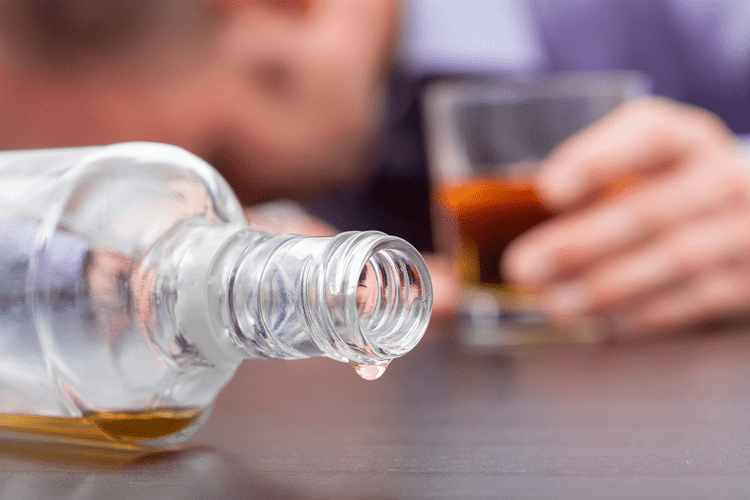Exercises such as deep breathing, progressive muscle relaxation (PMR), and meditation can change your brain and make you more self-aware, which can help you cope with emotions when a craving for alcohol strikes. It’s common to feel distressed when the world feels chaotic and uncertain. To feel a sense of belonging with your peers, mix up a mocktail or have a glass of water in between rounds to help reduce cravings and curb your intake. Other research suggests that stress perpetuates inequities in alcohol problems for Black communities, particularly for those disproportionately affected by the pandemic. A growing moderation movement harnesses strategies from meditation to cut back on alcohol. Search for non-alcoholic alternatives as long as they aren’t triggering for you.
- For resources related to AUD, including how to get support, please visit the NIH website.
- Again, also consider all the other added expenses you have with a night out of drinking.
- Since you’d like to cut back, find new outlets to let out your stress and emotions so they don’t stay inside of you and push you to drink.
- According to our survey results from Dry January challenge 2023, 74.02% of participants stayed dry.
- Now that we understand the numerous health benefits of Dry January, it’s crucial to maintain this momentum even as the first month of the year concludes.
- While society likes us to believe it’s all about willpower, it’s not so simple.
Setting Clear Goals
- Allow yourself to be human and accept that change doesn’t happen overnight.
- Given that many social interactions revolve around alcohol, the decision to abstain may appear isolating.
- If the people around you are heavy drinkers, for example, a fully Dry January might be difficult.
This is more than a mere interval of abstention; it is an embrace of conscious consumption, where the symphony of moderation and mindfulness finds its balance. Beyond the temporal confines of these designated months, an awakening takes root, leading to a harmonious relationship with alcohol that resonates far beyond the calendar pages. In this blog, we’ll catch a glimpse of the potential that arises when purpose and action are combined when self-awareness and mindful eating intertwine to create a flourishing sense of well-being. Those aforementioned guardrails look different for everyone, Benson says.
Unveiling the Health Benefits of Dry January
Almost 23% of drinkers in the U.S planned to participate in Dry January 2021. The stressful effects of the pandemic still have people drinking more than usual, especially those with work and financial stress. The trend to drink less is changing not only people’s lives but also companies. Sales of non-alcoholic beer also https://stocktondaily.com/top-5-advantages-of-staying-in-a-sober-living-house/ grew by almost 40%, allowing people to feel as though they didn’t have to completely give up their love of beer. This encourages the creation of more mocktails and other non-alcoholic beverages people can enjoy year-round. Celebrities, charities, and government health groups all promoted Dry January to the public.
Free Healthbeat Signup

Dry January began in 2012 as a public health initiative from Alcohol Change UK, a British charity. This moderation mind-set might particularly appeal to people searching for ways to scale back on troubling habits they developed during the pandemic. Studies have shown a dramatic increase in problematic drinking over the last year, especially among women. As the pandemic slogged on, “We had a real spike in people coming to us,” said Millie Gooch, who founded the Sober Girl Society collective in 2018.
[Podcast] Episode 8: Harm Reduction in Alcohol Health with Expert Dr. Andrew Tatarsky
Alcohol is not just a habit but often a stress-soothing response and a way to relax. Since you’d like to cut back, find new outlets to let out your stress and emotions so they don’t stay inside of you and push you to drink. If they won’t change, you can join other communities and use this as a push to get out of your comfort zone and expand your social circle. Whether it’s podcasts, books, or blogs, start reading up on the most effective habit change practices. You might be debating whether or not you should go fully dry, but there isn’t always a clear answer — it’s about what you feel ready for.

“Maybe he ushered in permission for me with the next person to say ‘Hey, do you want to get together for ice cream? ’ And nobody would roll their eyes at it because maybe secretly all of us would rather be getting ice cream this whole time,” he said. “There’s nothing really to give Top 5 Advantages of Staying in a Sober Living House up completely. But there are things to cut down on and things to increase. I think that’s really what we need to do with a lot of these things that aren’t good for us.” The urge to cope or numb with alcohol is real, but help is available if you feel like it would benefit you.
- The New Year brings many promises — a chance to start fresh, to leave old habits behind, and to reinvent ourselves in ways big and small.
- Dry January is a challenge that brings people together to notice their drinking habits for one month.
- This could include any hobby or passion such as painting, music, hiking, or even volunteering – anything that can offer emotional catharsis without a reliance on alcohol.
- For instance, previous participants have reported better mood, improved sleep, weight loss, higher energy, and greater focus.
Effective coping mechanisms are another significant arsenal in anybody’s sobriety journey. Practicing mindful techniques like meditation and deep breathing exercises can assist in managing stress. Knowing when and where to seek help is instrumental in the path to sobriety. Therapists and counselors trained in handling substance abuse cases can offer personalized and effective solutions to handle alcohol consumption. If you’re willing to change your way of thinking, and try this approach, there’s great news.
Leave a Reply